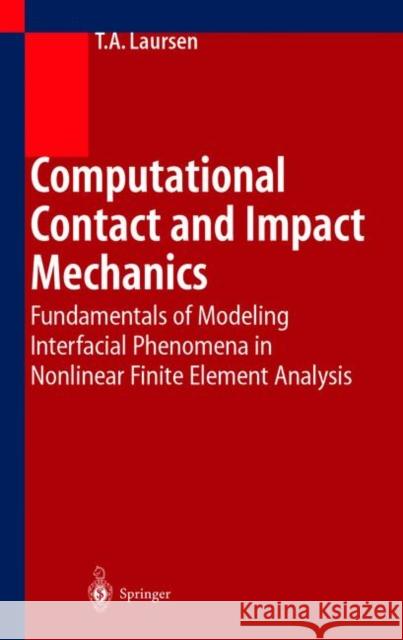Computational Contact and Impact Mechanics: Fundamentals of Modeling Interfacial Phenomena in Nonlinear Finite Element Analysis » książka
Computational Contact and Impact Mechanics: Fundamentals of Modeling Interfacial Phenomena in Nonlinear Finite Element Analysis
ISBN-13: 9783642076855 / Angielski / Miękka / 2010 / 454 str.
Computational Contact and Impact Mechanics: Fundamentals of Modeling Interfacial Phenomena in Nonlinear Finite Element Analysis
ISBN-13: 9783642076855 / Angielski / Miękka / 2010 / 454 str.
(netto: 575,06 VAT: 5%)
Najniższa cena z 30 dni: 578,30
ok. 16-18 dni roboczych.
Darmowa dostawa!
Many physical systems require the description of mechanical interaction across interfaces if they are to be successfully analyzed. Examples in the engineered world range from the design of prosthetics in biomedical engi neering (e. g., hip replacements); to characterization of the response and durability of head/disk interfaces in computer magnetic storage devices; to development of pneumatic tires with better handling characteristics and increased longevity in automotive engineering; to description of the adhe sion and/or relative slip between concrete and reinforcing steel in structural engineering. Such mechanical interactions, often called contact/impact in teractions, usually necessitate at minimum the determination of areas over which compressive pressures must act to prevent interpenetration of the mechanical entities involved. Depending on the application, frictional be havior, transient interaction of interfaces with their surroundings (e. g., in termittent stick/slip), thermo-mechanical coupling, interaction with an in tervening lubricant and/or fluid layer, and damage of the interface (i. e., wear) may also be featured. When taken together (or even separately ), these features have the effect of making the equations of mechanical evolu tion not only highly nonlinear, but highly nonsmooth as well. While many modern engineering simulation packages possess impressive capabilities in the general area of nonlinear mechanics, it can be contended that methodologies typically utilized for contact interactions are relatively immature in comparison to other components of a nonlinear finite element package, such as large deformation kinematics, inelastic material modeling, nonlinear equation solving, or linear solver technology."











